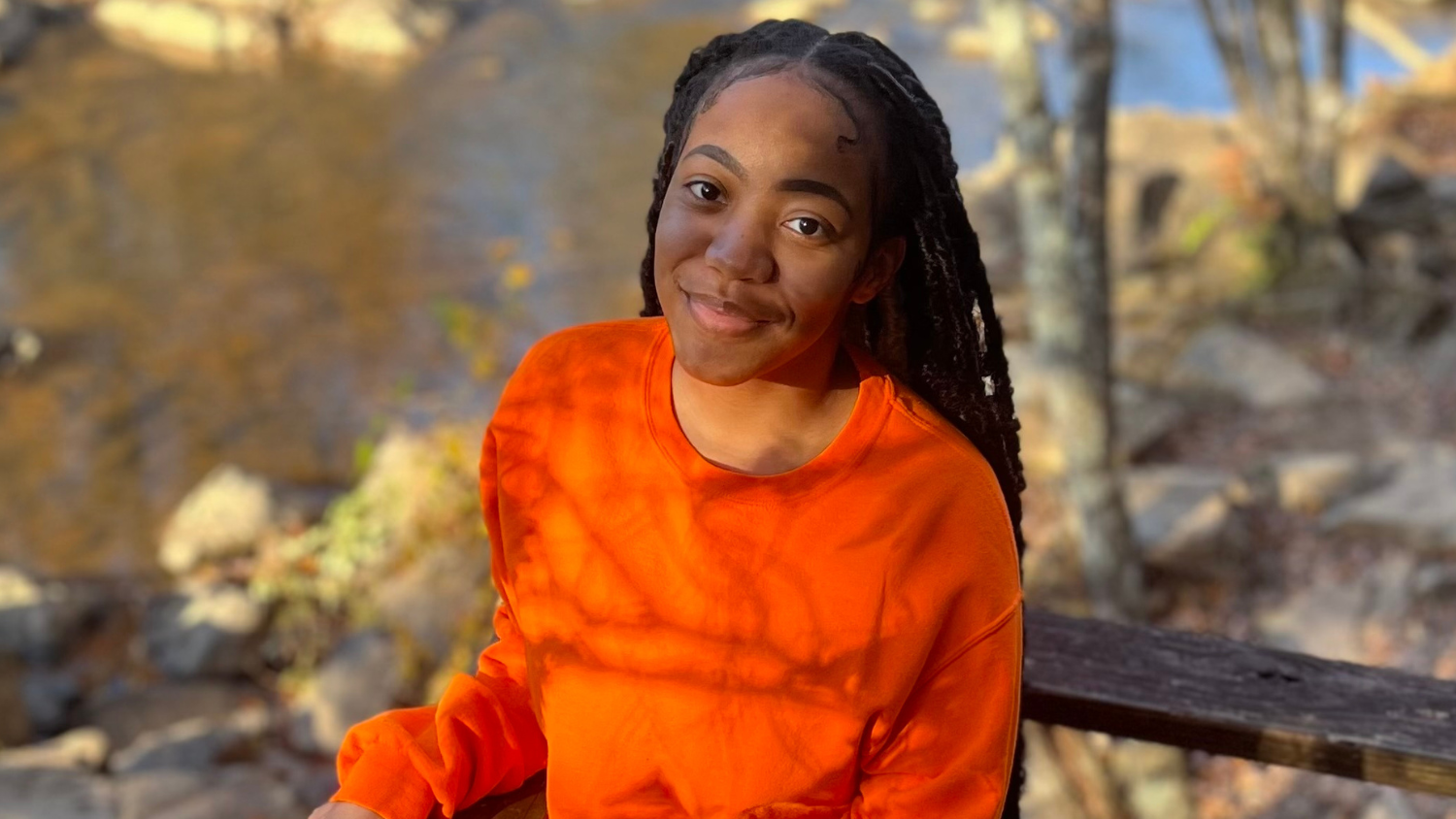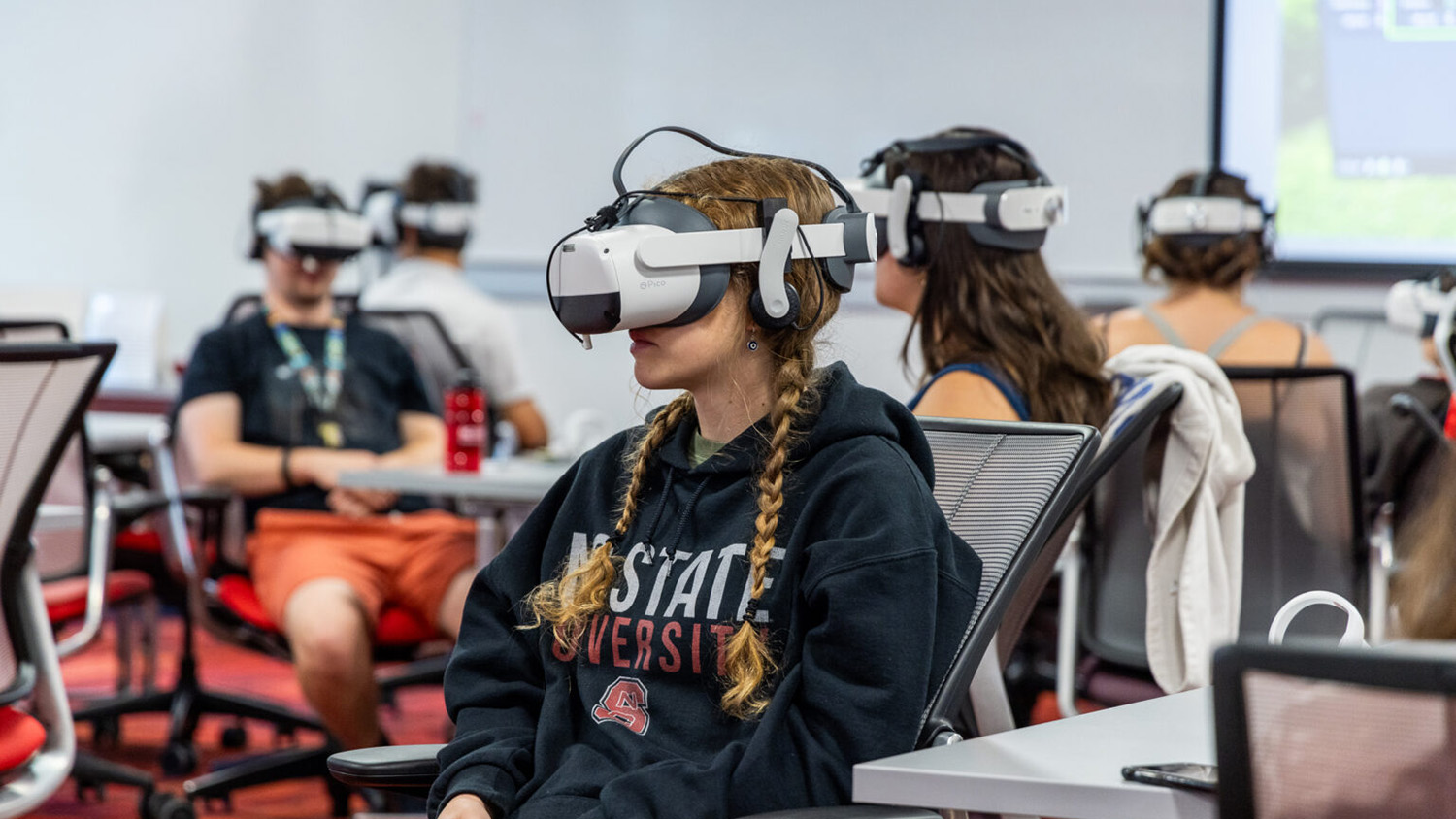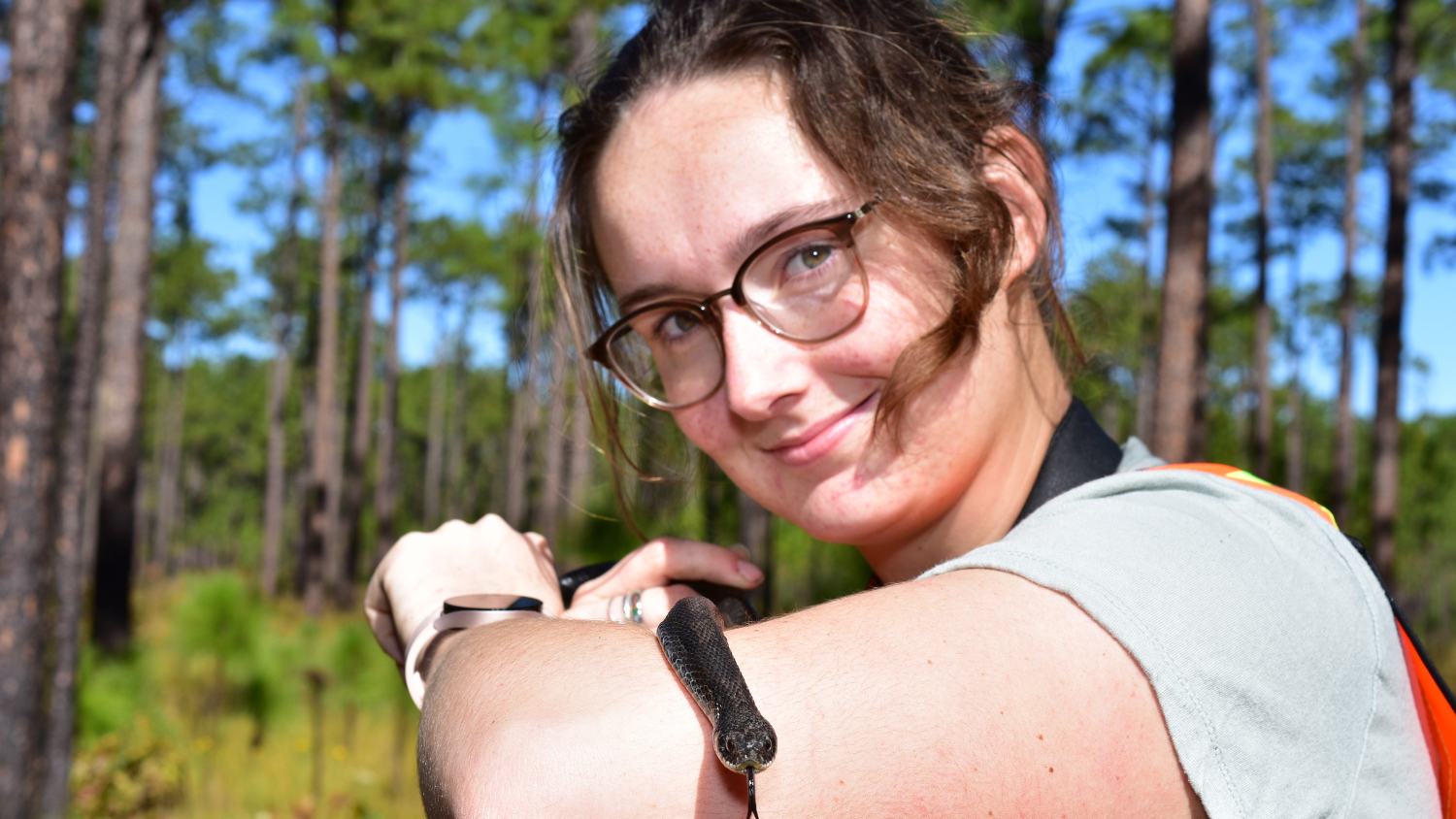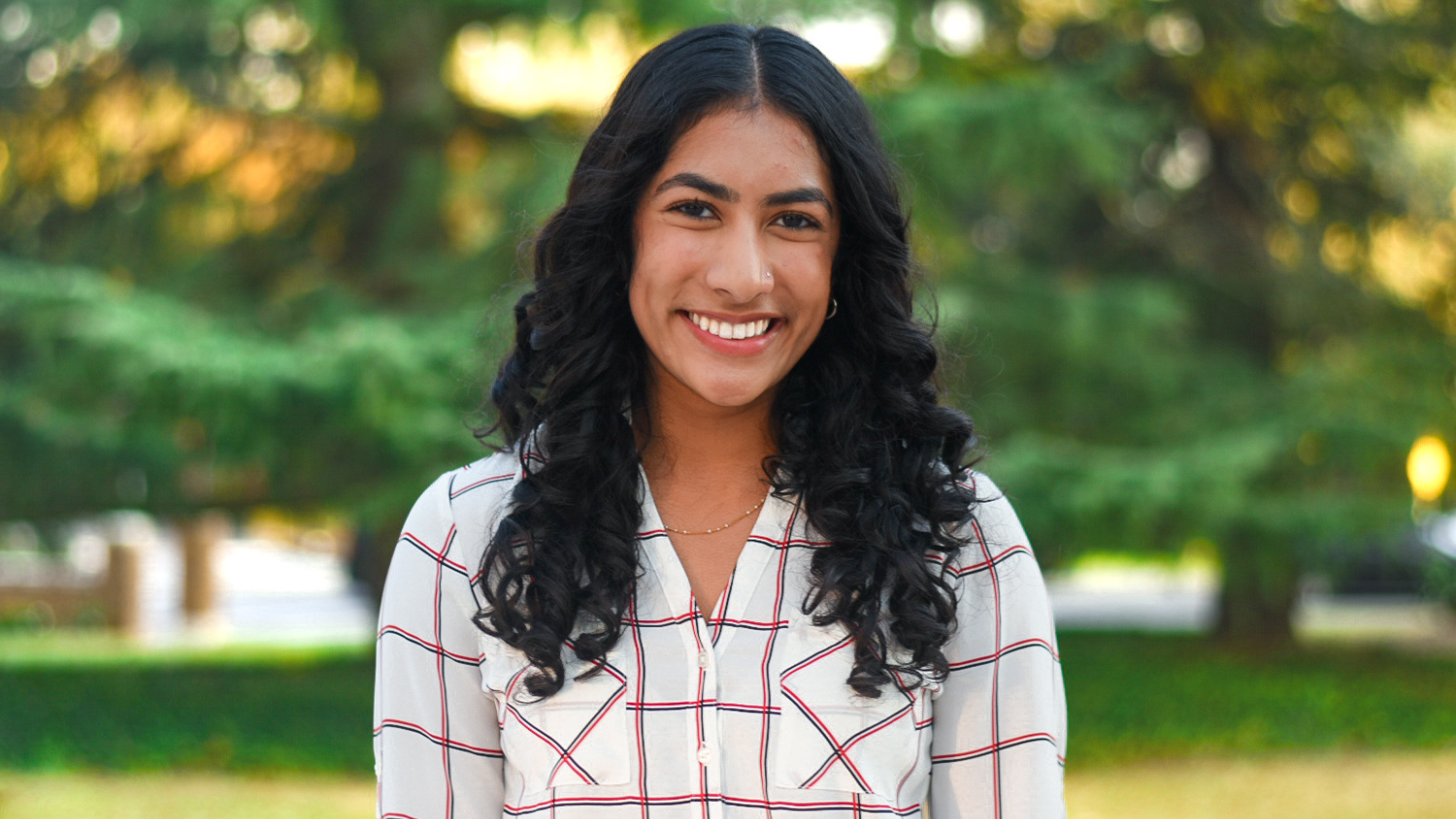This article is part of a Black History Month series highlighting the college’s faculty, staff and students who are participating in the U.S. Department of Agriculture’s National Needs Fellowship Program.
Rachel Wood is a Ph.D. student in the Department of Forestry and Natural Resources and USDA National Needs Fellow. Her research centers around using environmental justice as it relates to air emissions from the Enviva wood pellet facility right outside of Ahoskie, North Carolina, her hometown. Ahoskie is a small rural town with a majority minority population.
Wood is one of several students recruited to NC State as part of a new program aimed at training doctoral students to incorporate environmental justice in their research and careers. The program is funded by the USDA National Needs Fellowship Program. Wood joined the program prior to graduating with a master’s degree in earth science from North Carolina Central University, an historically Black college and university (HBCU), in December 2022.
The USDA National Needs Fellowship Program provides funding to faculty at colleges and universities across the country to support the recruitment and training of graduate students, particularly those from traditionally underrepresented groups, in order to increase the number, quality and diversity of students in the food, agricultural and related sciences.
We asked Wood to tell us more about the impact she hopes to make through her research and her involvement in the program. Check out the Q&A below.
How do you hope to make an impact through your research?
Although plans are still in the works as for what my research will look like, some of the main goals that I have are to analyze air emissions from the Enviva wood pellet facility and to incorporate community outreach. I hope that my research can be used to help keep the health and safety of my community protected. This work can also inspire and enact change if it is needed, not only for Ahoskie, but other communities that may exhibit similar circumstances.
What encouraged you to enter your field of study?
My interest in the science field has always been, but I took a particular interest in environmental toxicology. There are many communities that are faced with environmental concerns that can lead to long-lasting health effects. Everyday, we are being exposed more to the problems that communities are facing, especially in terms of having access to clean drinking water.
How has the College of Natural Resources helped you along the way?
I began my journey with the College of Natural Resources in the summer of 2022. Although I have not been in the program long, NC State has provided me with the resources and the academic guidance that I need to be successful as a Ph.D. graduate student. The support has really helped me excel as a student and has strengthened the confidence I have for myself. Transitioning from an HBCU into a predominantly white institution can be difficult. However, my peers and advisors have contributed to making that transition as smooth as possible.
What challenges have you faced in your career?
The greatest challenge that I have faced in my career has been balancing my personal life from my academic life. My past personal predicaments resulted in me finishing my master’s degree while starting a Ph.D. at the same time, which was not easy. That situation taught me discipline and how to prioritize and balance my personal life and school. The hardest part of that experience was preparing for my master’s defense, all while completing the end of my first semester of classes as a Ph.D. student. I had to work harder than my peers because I had to meet all the academic requirements from two different universities. Nonetheless, I persevered through and accomplished all of my goals.
What future aspirations do you have in your field of study?
I’m not sure what the future will hold, but ideally, I would like to further my research in environmental toxicology. I want to make a positive impact in other marginalized communities that could benefit from the work that I do.
What advice do you have for the next generation of young Black professionals entering your field?
The best advice I can leave with the next generation behind me is to learn how to discipline yourself. Without discipline, you cannot find consistency. The further you excel in life, the more challenges you will face — and often times it can be discouraging. But through consistency, it no longer becomes a matter of “if” but rather “when” you reach your goals. To the next generation of young Black professionals, it is important to know who you are and to stay grounded as you navigate through the next stages of your professional development. Sometimes we can be the boulder blocking our own paths, but through discipline and consistency, no challenge will deter you from the path you are destined to walk.
- Categories:



